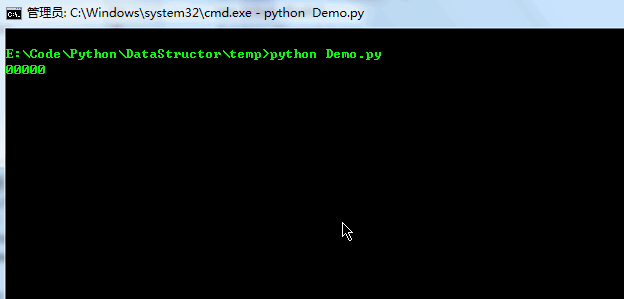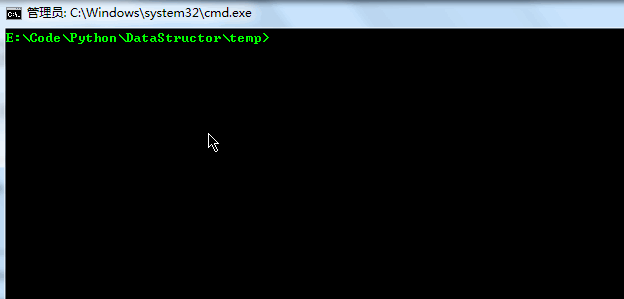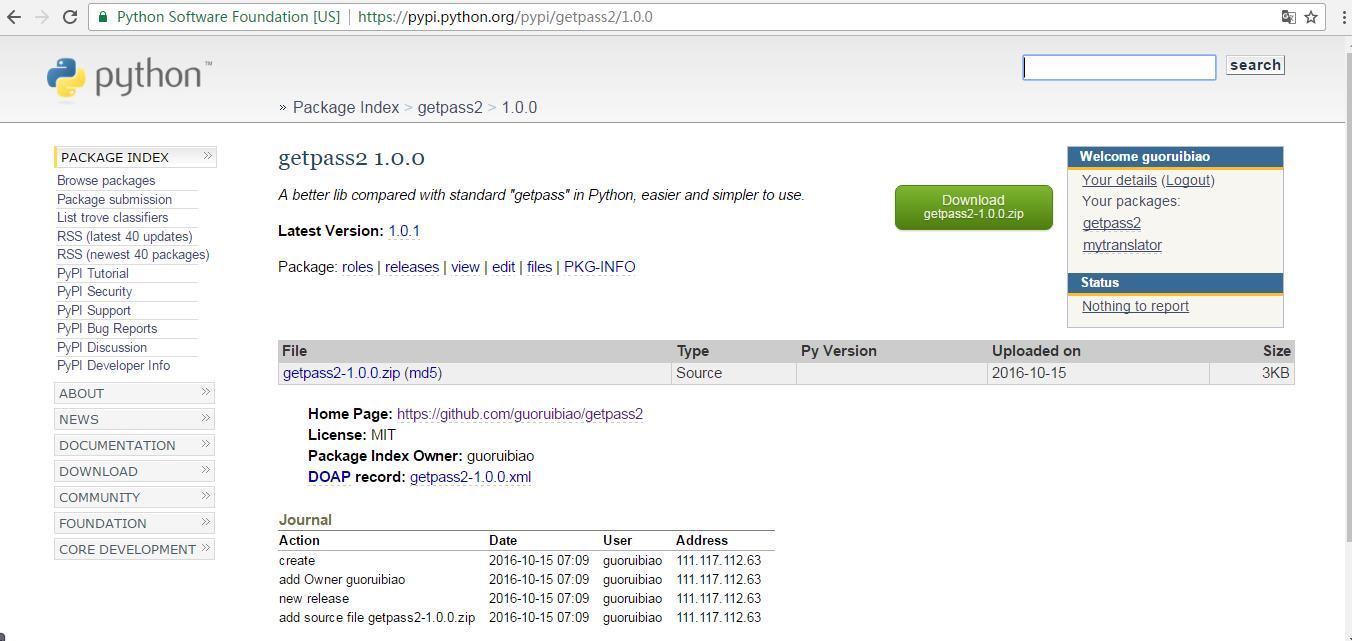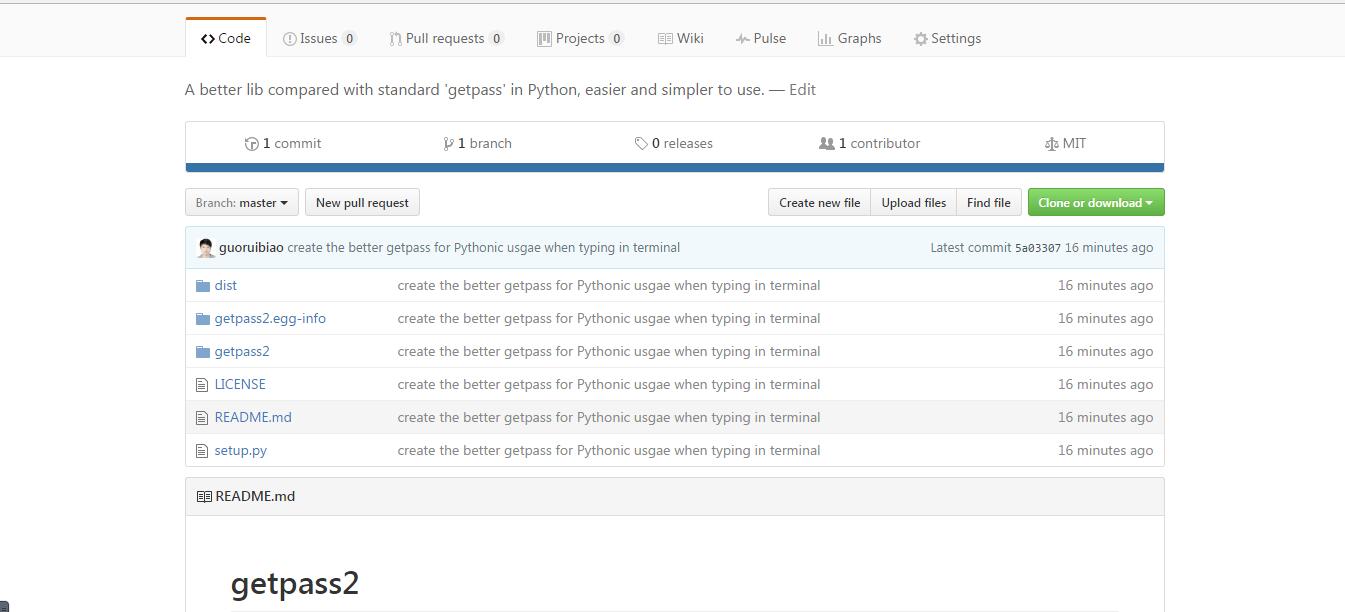用过Linux的都知道,尤其是进行使用包管理软件类似于apt-get这种的,密码是不回显的。在一定程度上可以保护我们的密码不被旁边的人看到,保护个人的隐私。但是很多时候,我们自己也是深受其害,因为不知道自己已经输入了几个字符了,这就有可能会让不自信的人删完,再重输入一遍。
同样的Python标准库里面有一个叫getpass的库,比较简单,针对于windows 和 Mac OS X都适配。用途也很广泛,但是唯一的缺点可能就跟上面说道的一样,不能显示已经输入了多少个字符! 这就显得很尴尬了。
那么今天就从易用性的角度出发,写一个更好用的getpass出来吧。
编程伊始
类比于一个进度条,在输入数据的时候,是不能够换行的。也就是说,提示语句只会在本行内显示。
常用的print函数末尾会自动的换行回车,所以我们不能用它了。然而sys.stdout.write则不会在后面添加额外的东西。二者正是我们想要的。但是其存在一个问题,那就是不强制输出的话,默认不输出信息,所以我们还需要强制输出一下。借助于sys.stdout.flush函数即可。
下面先来看个小例子,就很容易明白了。
def test():
import sys, time
for i in range(5):
sys.stdout.write(str(i) * (5 - i) + '\r')
sys.stdout.flush()
time.sleep(1)运行结果如下:
正式实施
根据上面的思想,稍微动动脑筋我们就可以实现想要的功能了。代码很简单,大致如下:
# coding:utf-8
import sys, os
from time import *
reload(sys)
sys.setdefaultencoding('utf8')
# __author__ = '郭 璞'
# __date__ = '2016/10/15'
# __Desc__ = 改进版的getpass,更易用,更好用!
def getpass(prompt='', tip = 'You have typed %d characters!'):
# print the prompt to prompt user what to do
print prompt
import msvcrt
# get one charecter from terminal
cur_character = msvcrt.getch()
# the result will be out final answer!
result =''+cur_character
count = 1
# 循环的读取从控制台输入的字符数据 get character once a time from terminal
while cur_character!= '\r':
# show message at the old line with the help of the function named sys.stdout.write and sys.stdout.flush
sys.stdout.write(tip%(count)+"\r")
sys.stdout.flush()
# update the needed item
cur_character = msvcrt.getch()
result += cur_character
count += 1
# to avoid overlap the message, we'd better go to next new line.
print "\n"
# return what we really need
return result
if __name__ == '__main__':
password = getpass(prompt='\bplease input your username(there should contains no space):')
print password运行结果,符合我们的需求,如下:
最后输出了输入结果的原因就是我们main函数里面故意输出了,具体怎么用取决于您的代码。
改进版
至于改进版,是添加了自定义delimiter需求,以及完善“中途删除操作”等。
源码
# coding:utf-8
import sys, os
from time import *
reload(sys)
sys.setdefaultencoding('utf8')
# __author__ = '郭 璞'
# __date__ = '2016/10/15'
# __Desc__ = just like getpass lib, this is also simple and easy to use. While the drawback is it's not so much pythonic in the implement of the function 'replace'.
# I am happy to hear you can join me to slove it. :)
# 改进版的getpass,更易用,更好用! 唯一的缺点就是replace函数中的实现略显粗糙,欢迎前来完善。
# show the numbers we have typed
def showByNumbers(prompt='', tip = 'You have typed %d characters!'):
# print the prompt to prompt user what to do
print prompt
import msvcrt
# get one charecter from terminal
cur_character = msvcrt.getch()
# the result will be out final answer!
result =''+cur_character
count = 1
# 循环的读取从控制台输入的字符数据 get character once a time from terminal
while cur_character!= '\r':
# show message at the old line with the help of the function named sys.stdout.write and sys.stdout.flush
sys.stdout.write(tip%(count)+"\r")
sys.stdout.flush()
# update the needed item
cur_character = msvcrt.getch()
if cur_character =="\b":
result = result[0:-1]
count -=1
else:
result += cur_character
count += 1
# to avoid overlap the message, we'd better go to next new line.
print "\n"
# return what we really need
return result
# use the constom char to replace what we typed
def replaceWithDelimiter(prompt='', delimiter = '*'):
print prompt
import msvcrt
current_character = msvcrt.getch()
count = 1
result = ''
result += current_character
# if we typed backspace key, we should update the interface right now!
delta = 0
# get a character once a time and do something if meet the backspace
while current_character!='\r':
# build the stars to show
stars = ''
for index in range(count):
stars += delimiter
for i in range(delta):
stars += ' '
sys.stdout.write(prompt + stars + "\r")
sys.stdout.flush()
# update for next loop
current_character = msvcrt.getch()
# consider the backspace key
if current_character == '\b':
count -=1
result = result[0:-1]
# for erase the extra delimiters
delta +=1
else:
result += current_character
count +=1
# it's necessary to print in a new line for avoiding overlapping
print "\n"
# return what we really need
return result
def getpass(prompt='', mode='n', tip='You have typed %d characters!', delimiter='*'):
if mode =='n':
return showByNumbers(prompt=prompt, tip=tip)
elif mode == 'r':
return replaceWithDelimiter(prompt=prompt, delimiter=delimiter)
else:
raise NameError('There are only two choice, so check your input!')
if __name__ == '__main__':
"""
Here are some useful test. And you can also do it just like this!
:)
"""
# password = getpass(prompt='\bplease input your username(there should contains no space):')
# print password
# password = replaceWithDelimiter(prompt='\bplease input your username(there should contains no space):', delimiter='')
# print password
password = getpass(prompt='\bplease input your username(there should contains no space):', mode='n')
print password
pwd = getpass(prompt='\bplease input your username(there should contains no space):', mode='r', delimiter='#')
print pwd
以数字显示

以自定义分隔符delimiter显示

如何使用?
由于博主将这个工具封装好了,而且已经上传到了pypi上面。所以大家可以很容易的下载以及安装。
下载及安装
pip install getpass2在您的代码中使用
不出意外的话,使用下面的代码即可。
from getpass2 import getpass
......如果,没能正常的工作,找到您的Python的site-packages,找到getpass2文件夹,将里面的getpass2.py拷贝到您的项目中即可。同样可以完美的运行。
源码下载
如果您想直接看一下源码的话,可以到博主的GitHub上直接下载。下载链接如下:
总结
本篇文章主要是介绍了完善Python标准库的一个小案例。其实并没有什么难于理解的地方。关键在于动手实践。
如果您对此有兴趣,不妨fork 或者star来一起完善一下吧。
(^__^) 嘻嘻……



